A new rule for the Eurovision Song Contest was announced yesterday. From 2013 onwards, the running order will no longer be determined by drawing lots, but instead will be decided by the producers of each year’s show. The host country’s spot will be the only one to be determined by a draw. According to the new rule, the suggested running order will be subject to the approval of the EBU Executive Supervisor (currently Jon Ola Sand) and the Reference Group.
Our editors Felix and Martin have slept on the news and come to different conclusions, as this opinion piece shows.
What do you think? Tell us by responding to the poll further down the page!
Felix K. thinks it’s a bad idea:
Downgrading Eurovision
We have seen some big changes in the history of Eurovision, but this one might be the most remarkable one ever. Not necessarily for the TV viewer, but definitely for the fans. I’d like to stress that I don’t see Eurovision as “just a TV show”, but indeed as a big event with Olympic character. And the current plans for changes seem to try to dismantle the latter. Sure, the “viewing experience” for the viewers of the show might improve, as the order of songs will make more sense. But with this change (among others), Eurovision will be further degraded and reduced to a TV show. As we remember, the upcoming ESC will be held in an arena smaller than the arena of the host’s own national final.
The minor loss is the exciting, annually streamed show, in which the running order was drawn under the eyes of the interested public, the delegations and the authorities.
Far bigger is the loss of fairness in the contest. The new rule will make the contest a lot more unfair, as it opens the doors to bribery on the one side, and even if that would not be the case, it will definitely cause conspiracy theories. I can’t predict the future, but I have a very bad feeling. Once the tabloids in big countries (the ones this rule seems to be made for) make this rule responsible for a bad result (and the rule doesn’t improve any song), even the common TV viewer will become sceptical. This might affect the viewing figures in a negative way – whereas the EBU should be interested to keep them up.
It took us ages to come to the current rules (up to this year), which I consider to be the fairest possible rules for Eurovision. Now there won’t be any way left for dedicated Eurovision fans to defend the contest to critical voices from non-fans when it comes to the fairness of the contest.
The self-righteous attitude of SVT reminds me of what we would have expected from a few other countries that were accused of being undemocratic in recent years. Why should we trust the Swedes more? It’s hypocritical. No matter if the contest is held in a free democratic country or in a dictatorship, I don’t like this “controlled” Eurovision, and I already didn’t like the controlled order of the voting. Sure, an undemocratic contest is nothing compared with an undemocratic environment that people are faced with in other countries where human rights are less natural. But just as with Eurovision, this article is not about politics, but about the contest. And this new Eurovision devaluates the contest. I don’t believe the improvement in the “viewing experience” and ratings will be more remarkable than the increase in the criticism, conspiracy theories and, finally, the loss of the show’s reputation. The artists themselves will be more bothered about this than their delegations.
The new rules are a betrayal of the traditional, formerly stressed dogma of fairness. The amount of damage can’t be foreseen, but it will come.
Martin F. thinks it’s a good idea:
Change doesn’t have to hurt
Ah, Eurovision fans. Sometimes it seems we’re never happy unless there’s something to moan about! Well, OK, it’s easy to see how this latest announcement has stirred up a bit of controversy, but I can see the plus points too.
The main argument seems to be a strong desire to produce a “better show”, and it would be hard to argue that a mere draw is ideal for achieving this. We all remember the slow, ballad-heavy beginning to ESC 2012, for instance – and that’s before we get to the horrors of ESC 2006, with its heap of sub-standard automatic qualifiers stinking up the start of the running order. Providing more of a balance between fast/slow and (perceived) stronger/weaker songs, as well as more of a geographical balance, would arguably lead to a better-quality offering and more sustained interest among viewers.
Now, is it fair to have the running order determined by a small number of people? Absolutely not. But it would be naive to suggest that the ESC is all about fairness these days anyway. The “draw” in its current form is barely a draw in the first place, with all its pots, halves, wildcards and so on. And if they really want to, the organisers and the EBU are perfectly capable of colluding to enhance (or detract from) the chances of an entry, whether with additional technical rehearsals, poor lighting or staging choices (ask the 2003 Bosnian delegation about that one!), by moving the commercial breaks at their discretion, and so on.
So why not take this process to its logical conclusion with a producer-determined running order? After all, such tricks are commonplace in music-based reality TV shows – and for all it has a far longer and more glorious history, that’s where ESC tends to be classified for TV stations and viewers nowadays, even if that trend may eventually pass.
It seems evident that a lot of the negative fan response is part of a wider anti-SVT narrative that has emerged during the off-season, with the Swedish broadcaster being described as overbearing and patronising in its approach to next year’s contest – but it’s worth noting that this new rule has been approved by the EBU Reference Group and can therefore be presumed to have the blessing of the participating broadcasters, even those who could conceivably suffer as a result.
Of course, how it all pans out in reality remains to be seen, but the whole process will clearly be subject to a huge amount of scrutiny. One country might get a perceived bad draw in 2013, for example, but it surely wouldn’t happen several years in a row or there would be consequences. Besides, what is a “bad” draw anyway? Even the dreaded #2 position doesn’t appear to be too much of a handicap in the split televoting/jury era, having produced qualifiers in five of the last six semi-finals, and a good enough song and performance should be able to qualify/win from anywhere.
The Eurovision Song Contest has changed a great deal over the years. No longer is it a competition full of twee little songs being performed simperingly by the likes of Lys Assia (OK, bad example!). And even if this new rule proves to be a mistake, our beloved contest has survived questionable changes before – lest we forget that, for three years in the early 1970s, the results themselves were determined by a mere two highly corruptible jurors from each country! – and it’ll survive them in future, too. ESC is a durable old beast.
Now: What do you think about the new rule?
(NB. The order of the answers in this poll was determined by drawing lots)
[polldaddy poll=6674201]

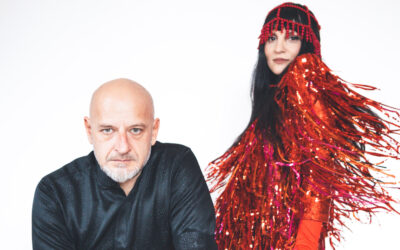

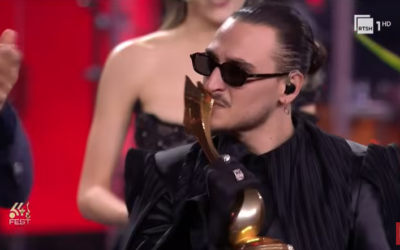
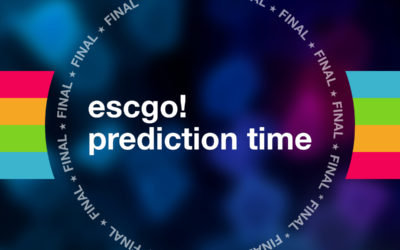

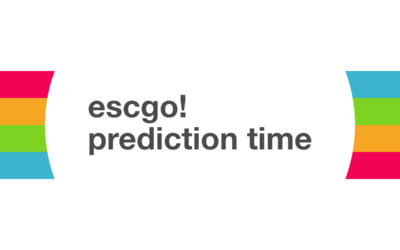


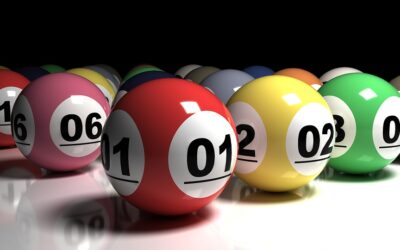


0 Comments